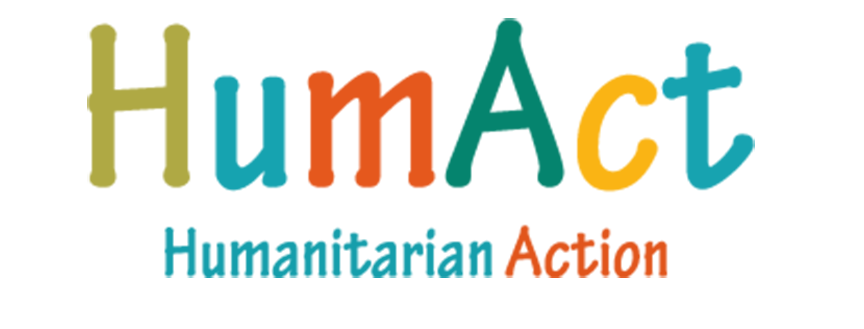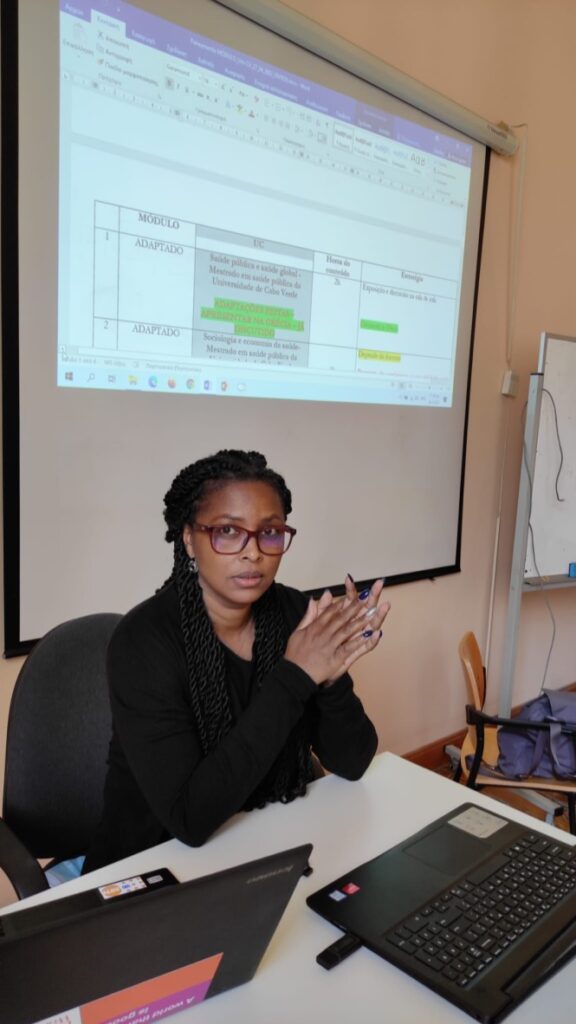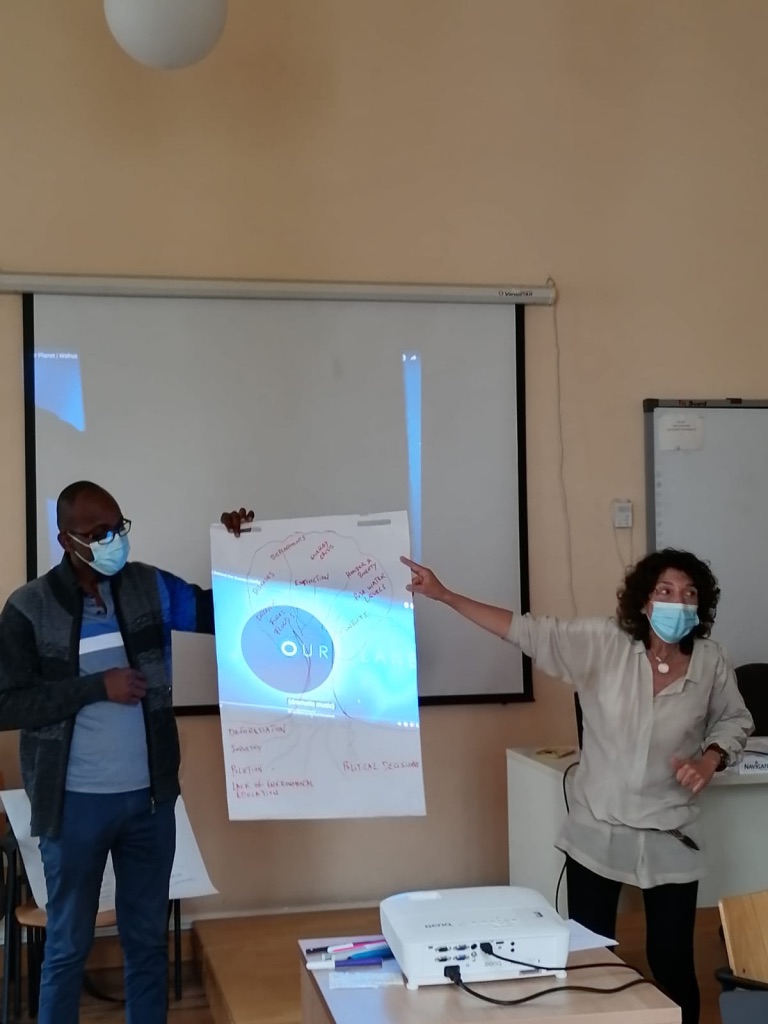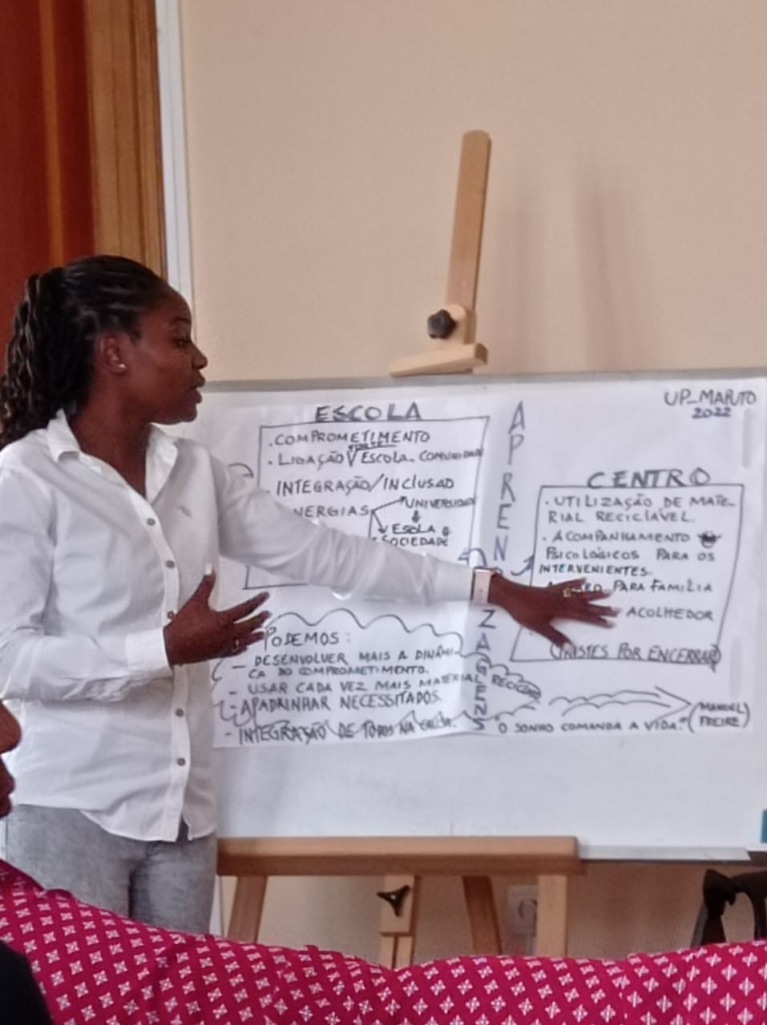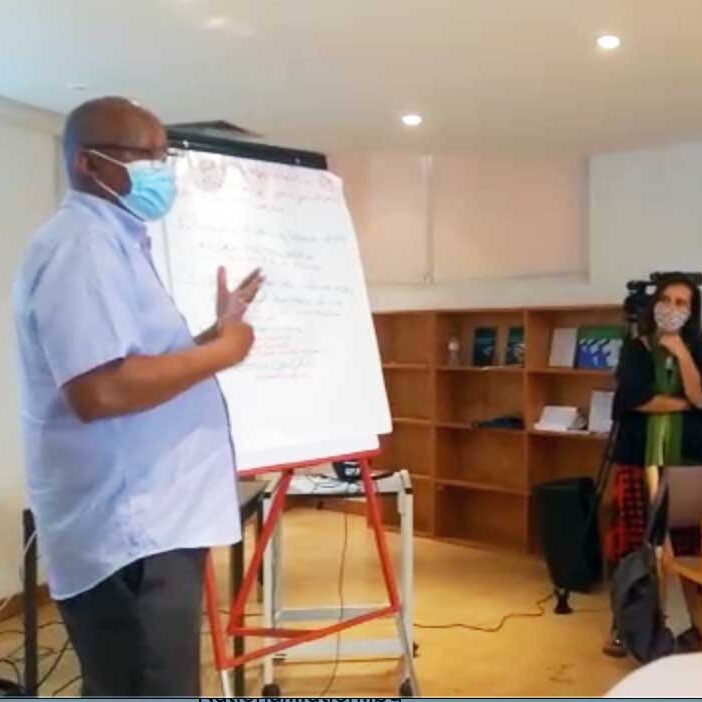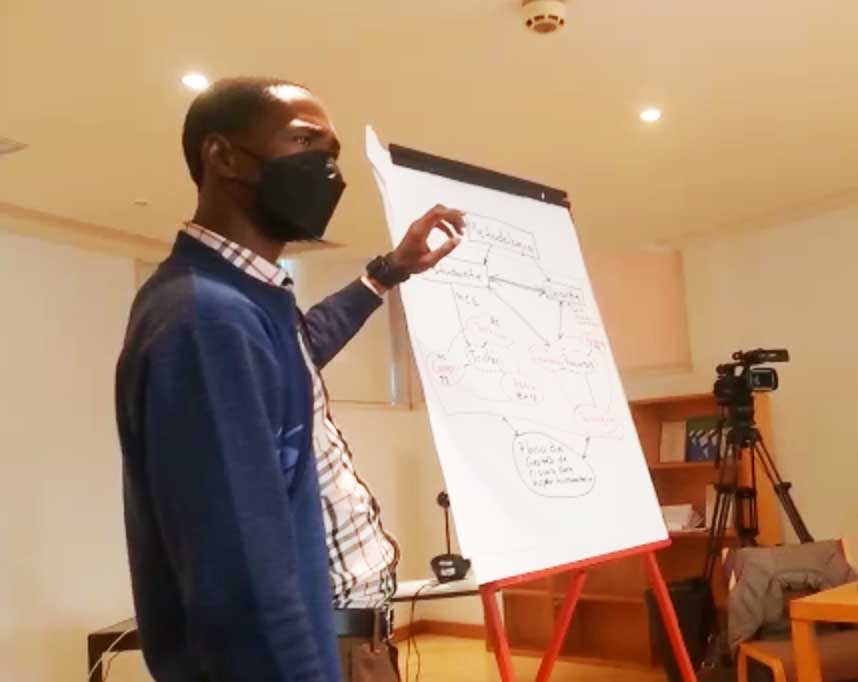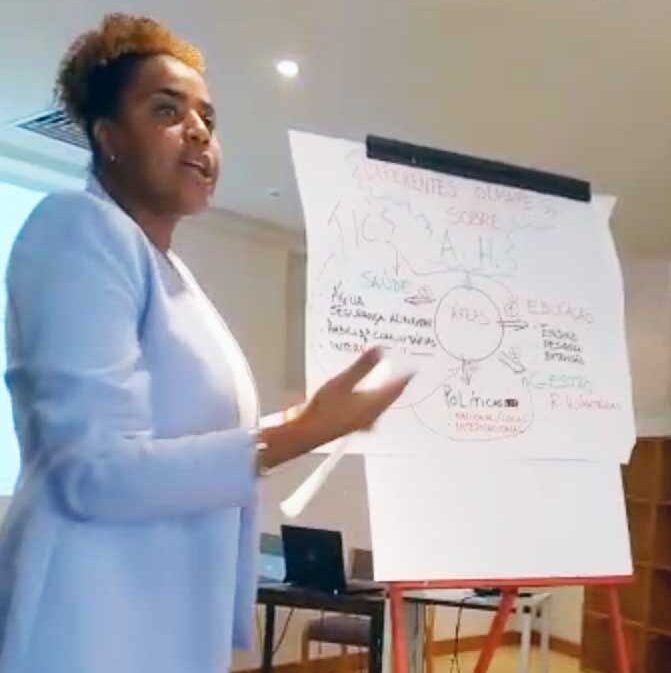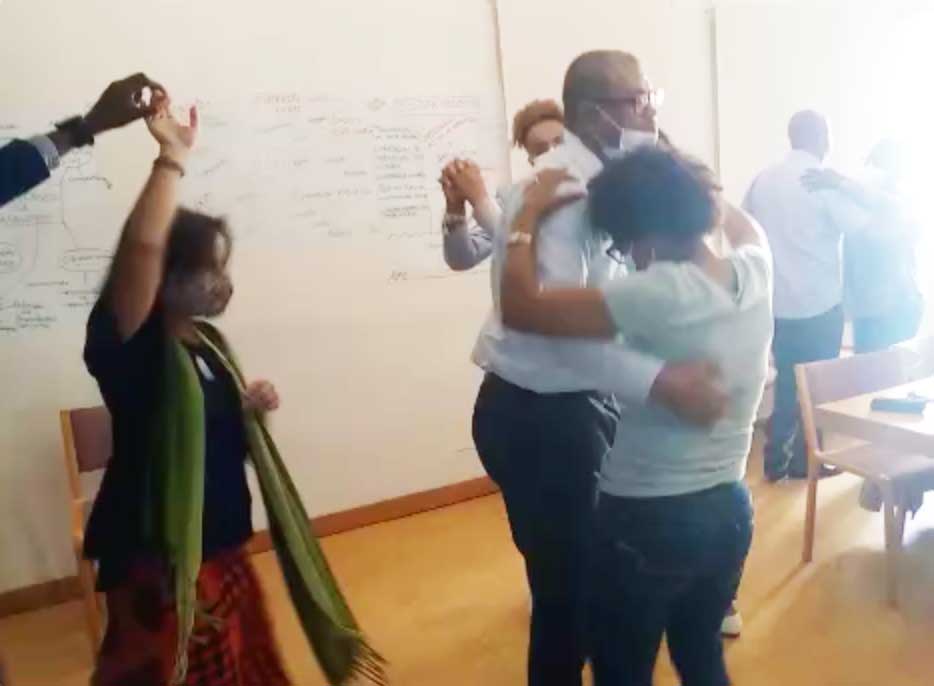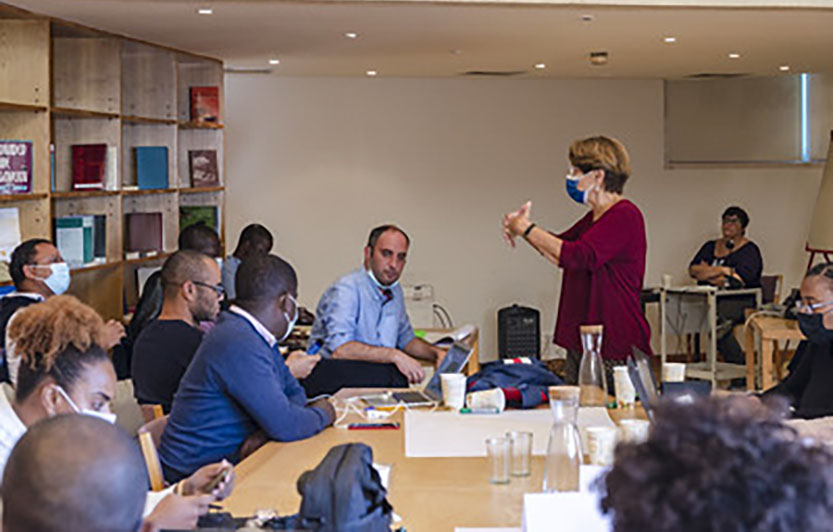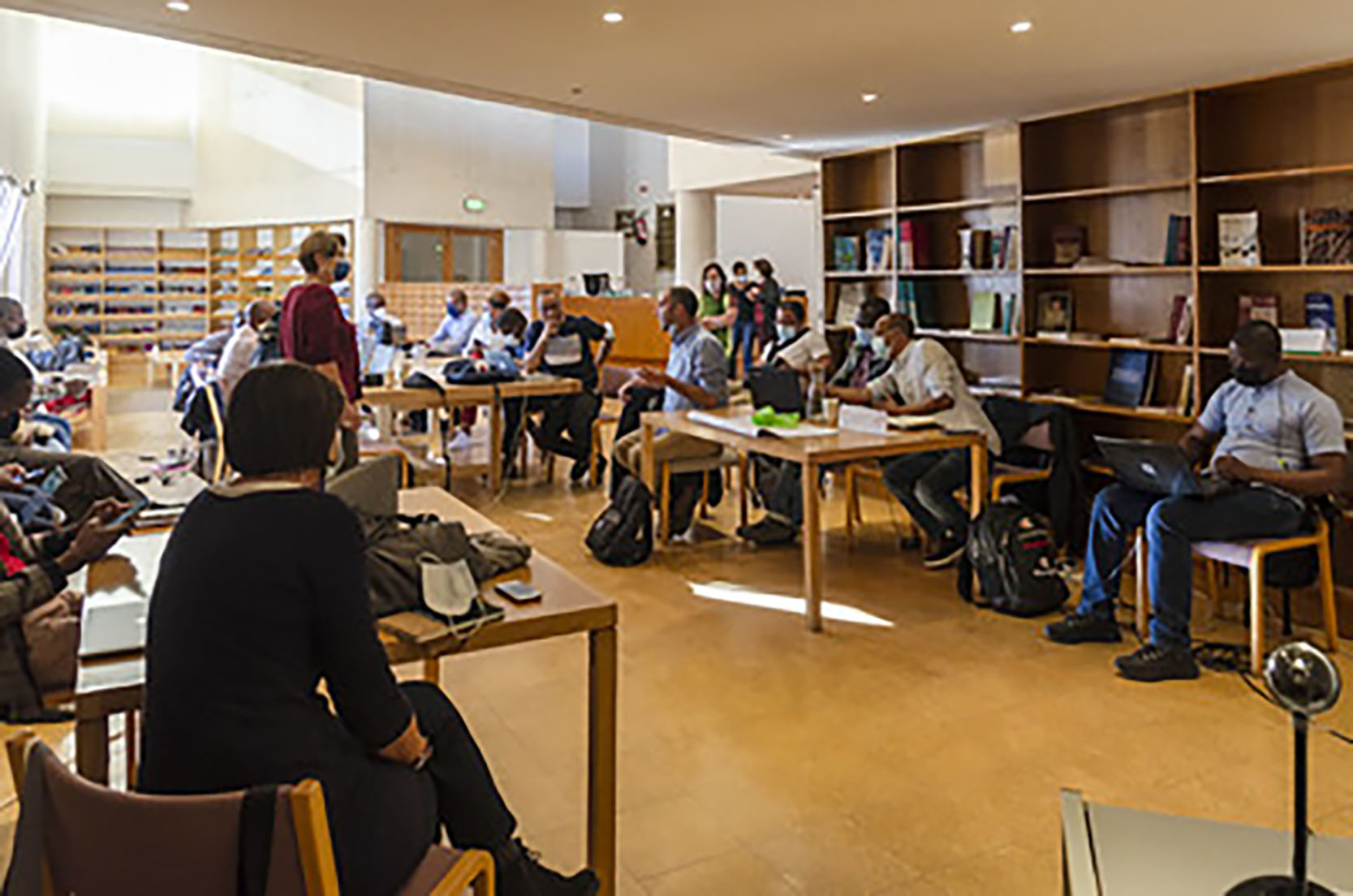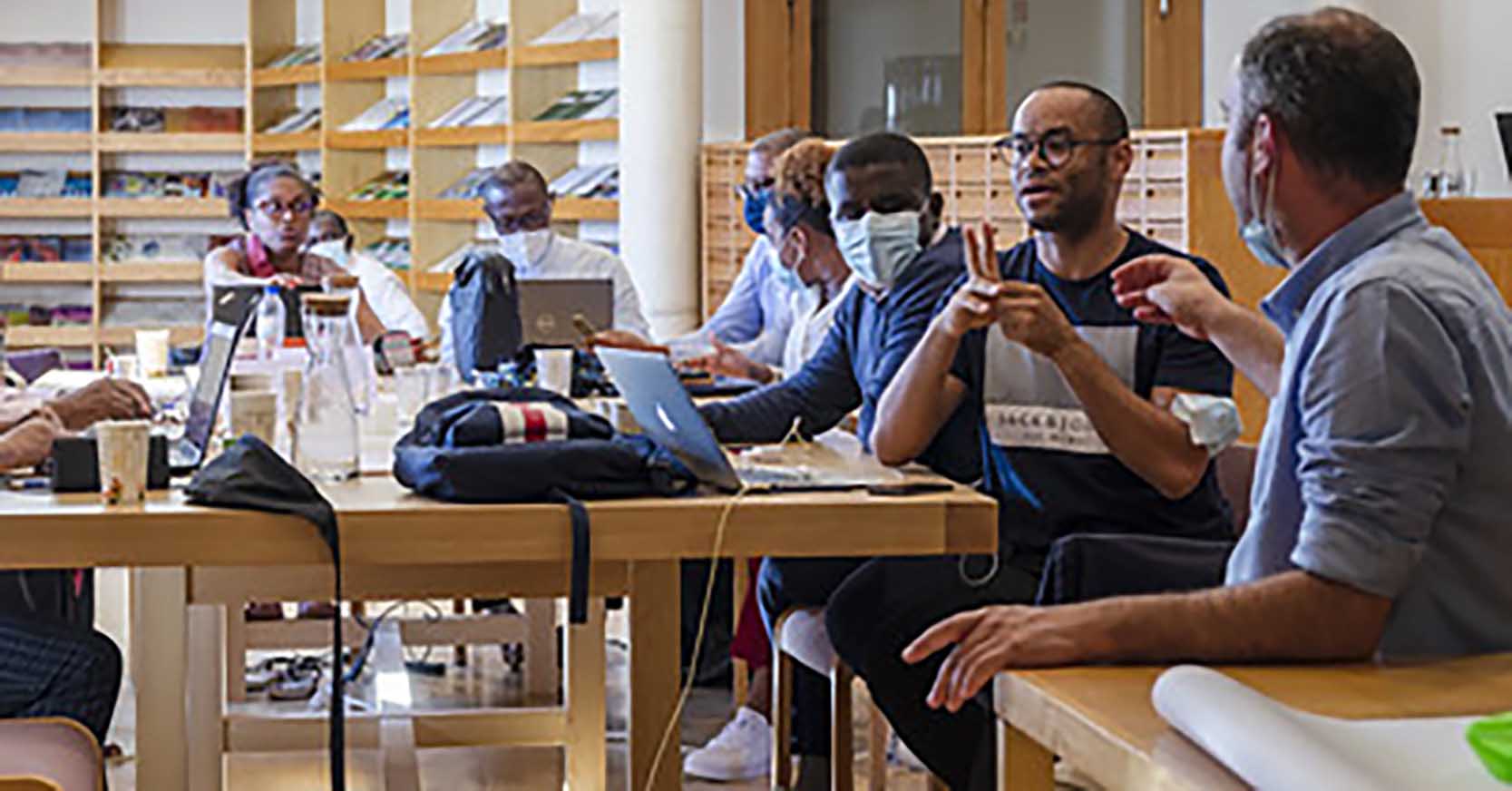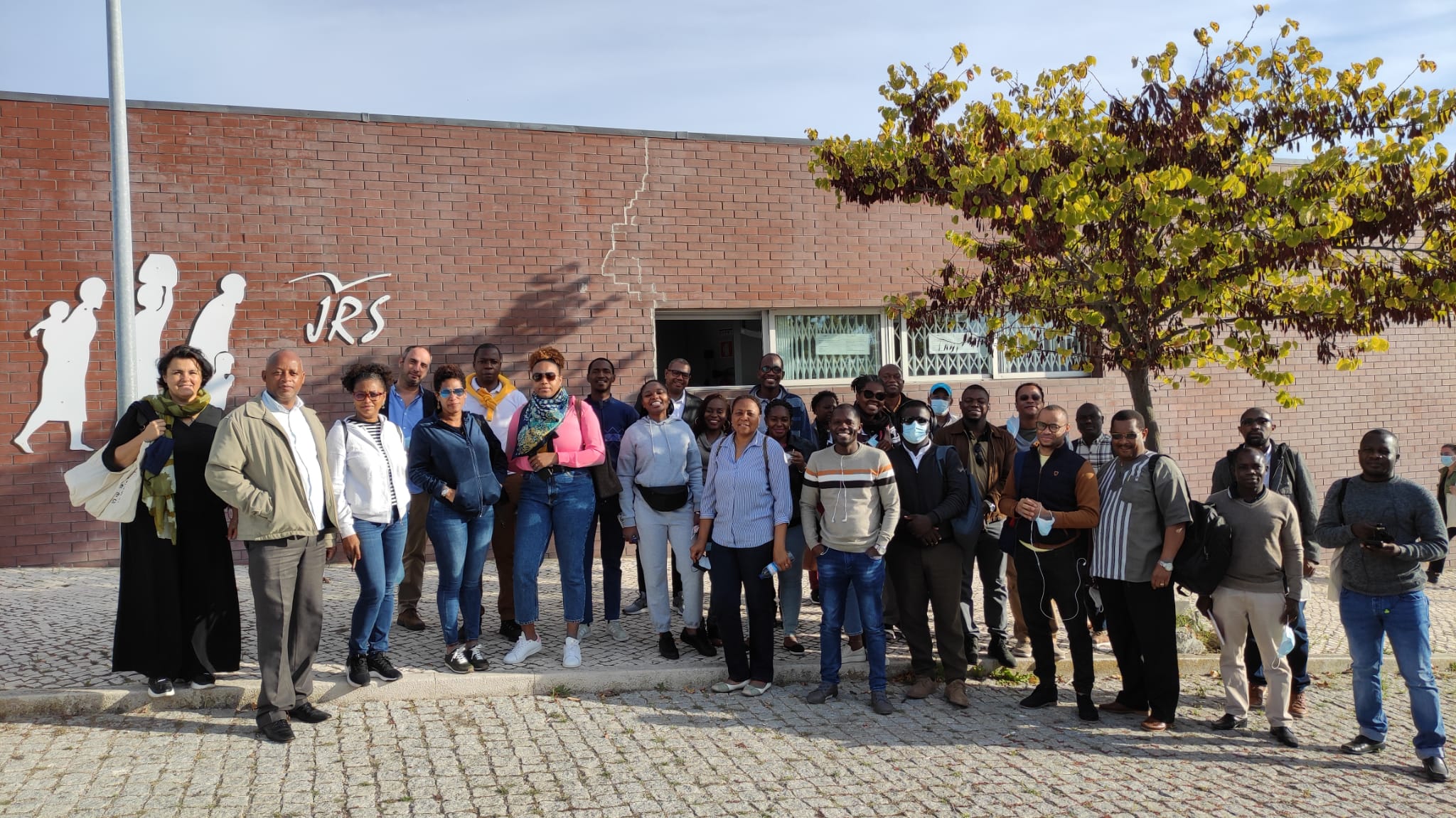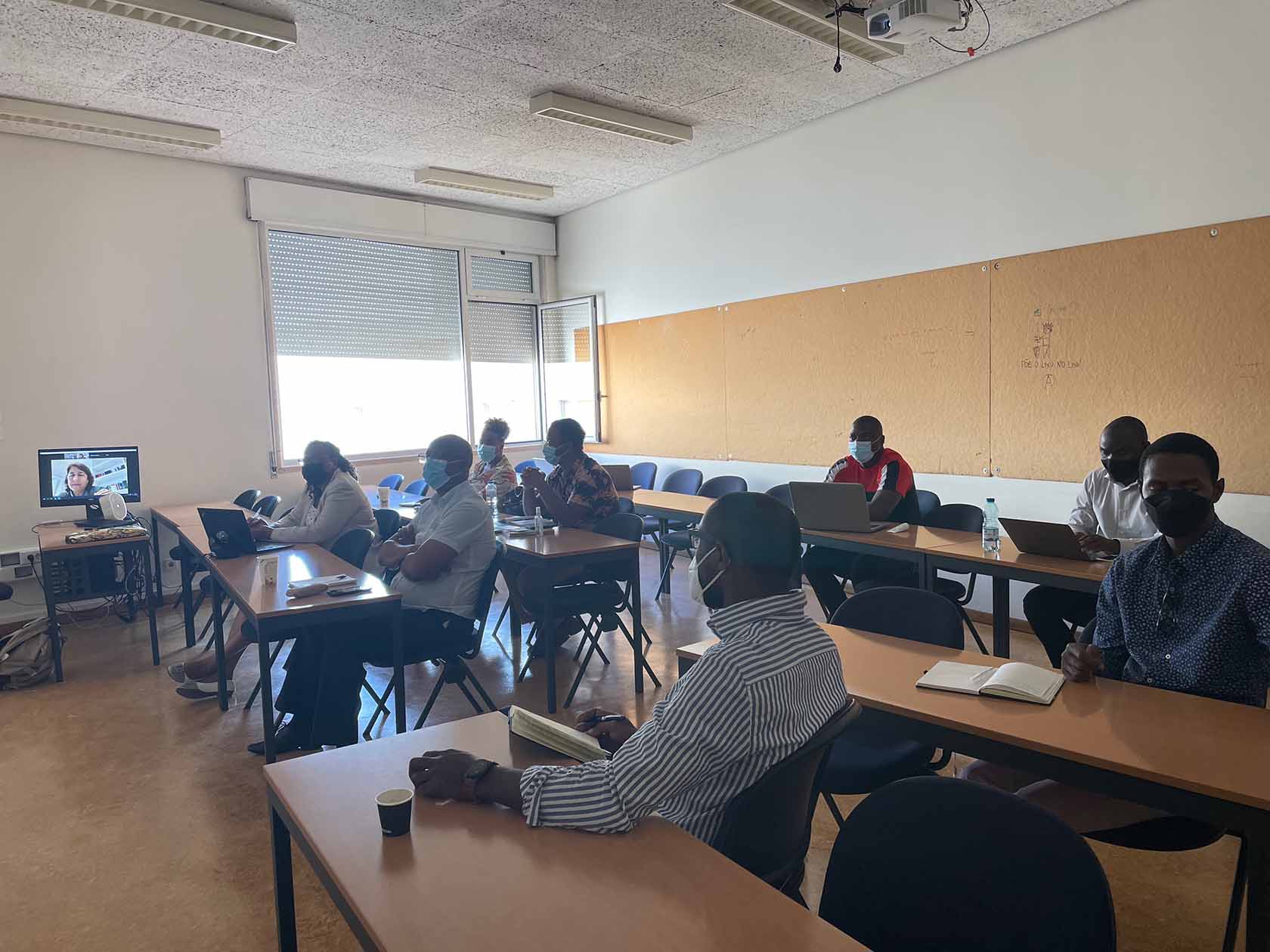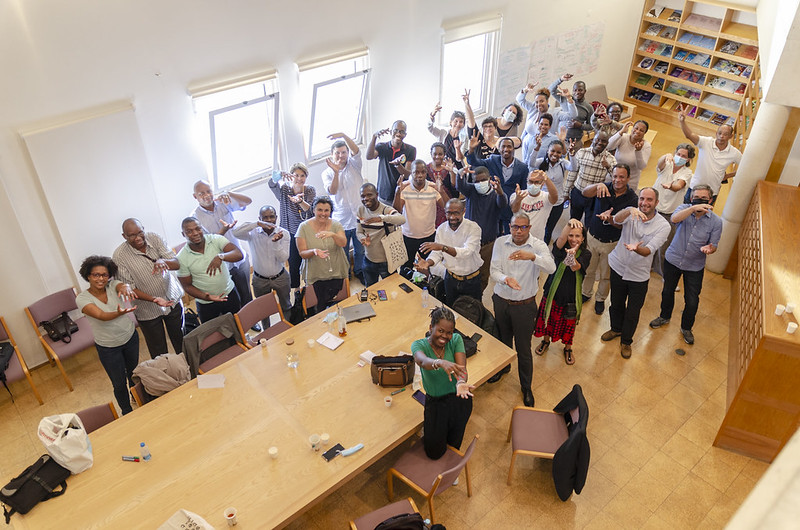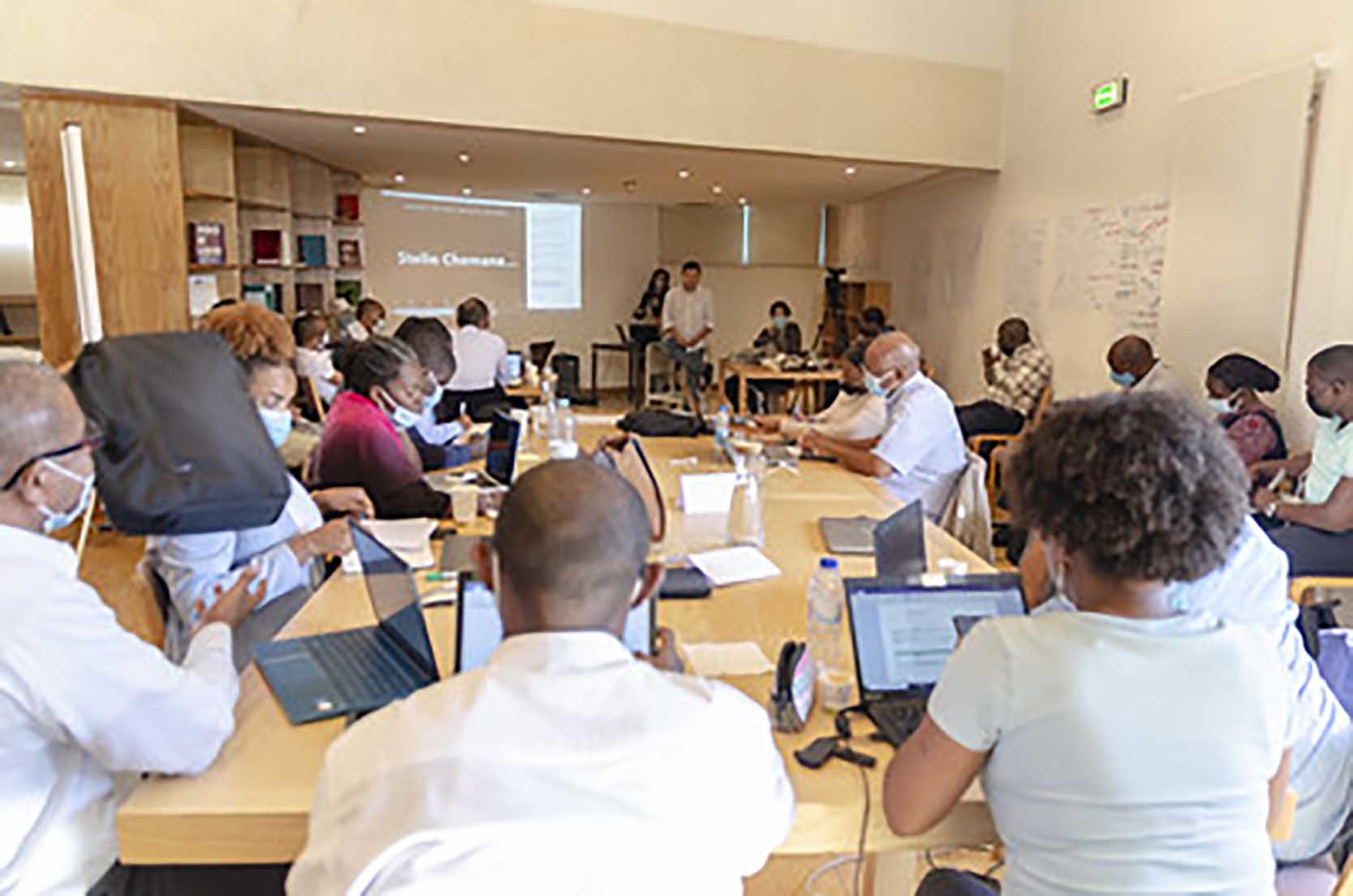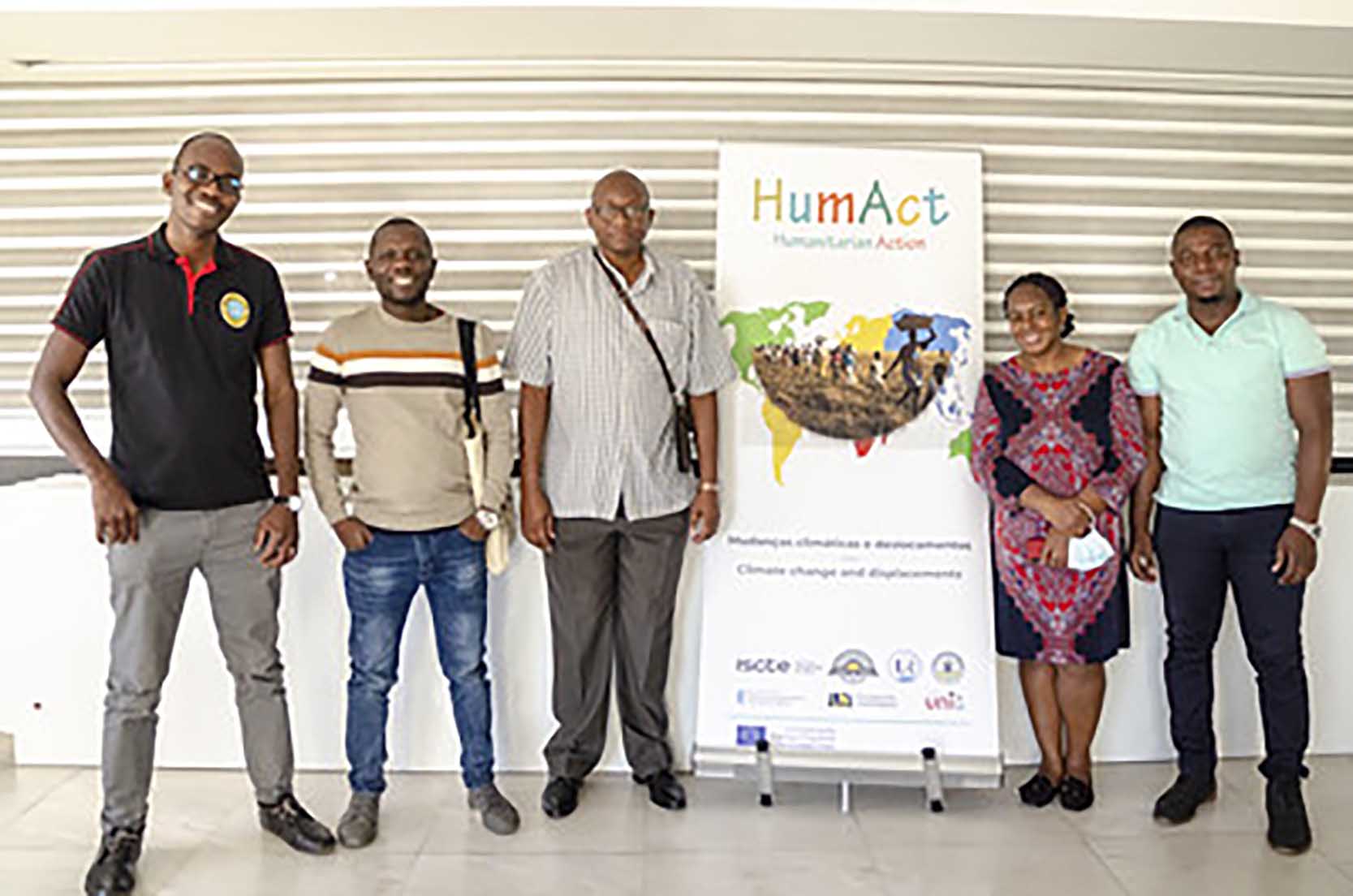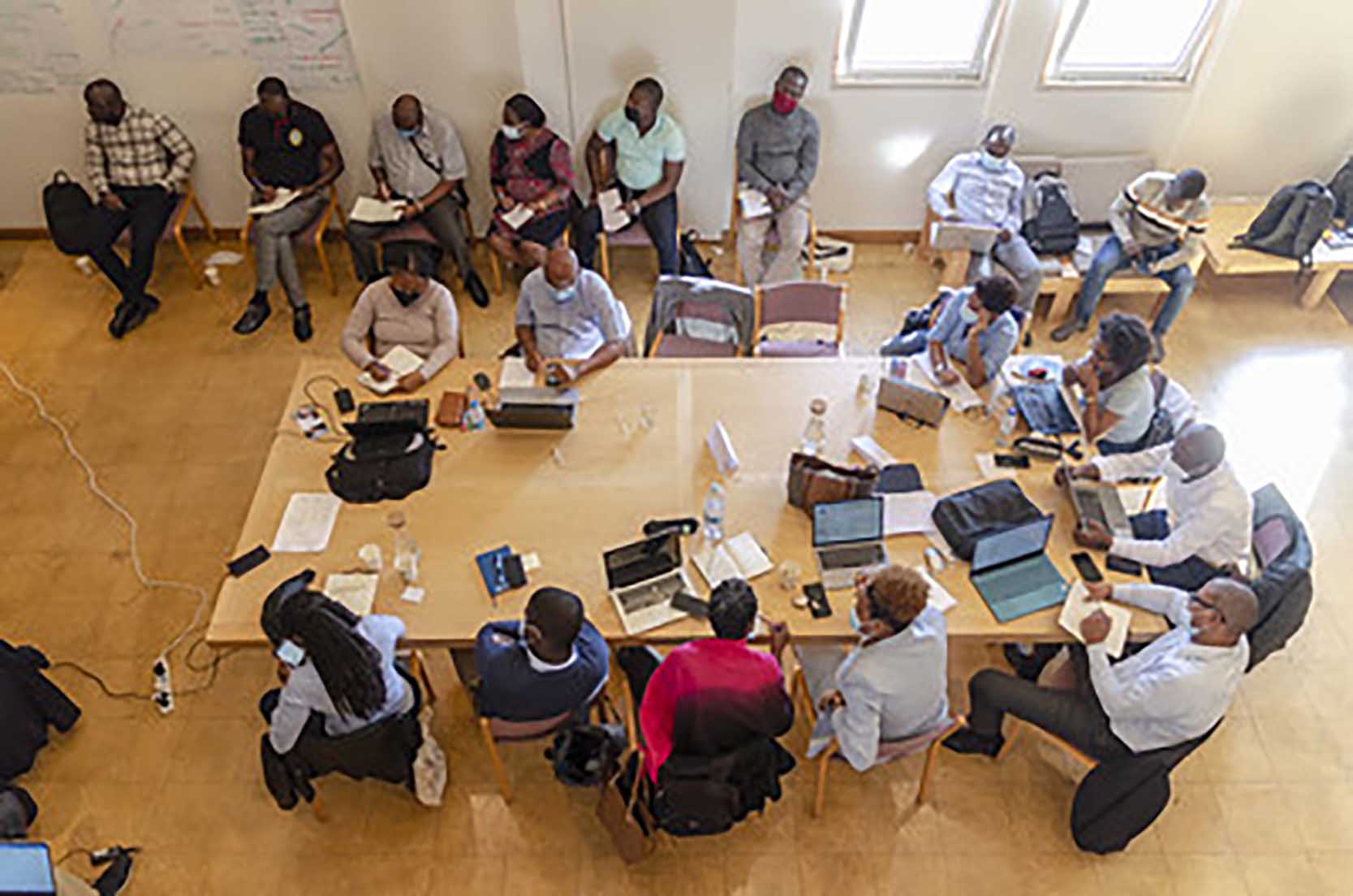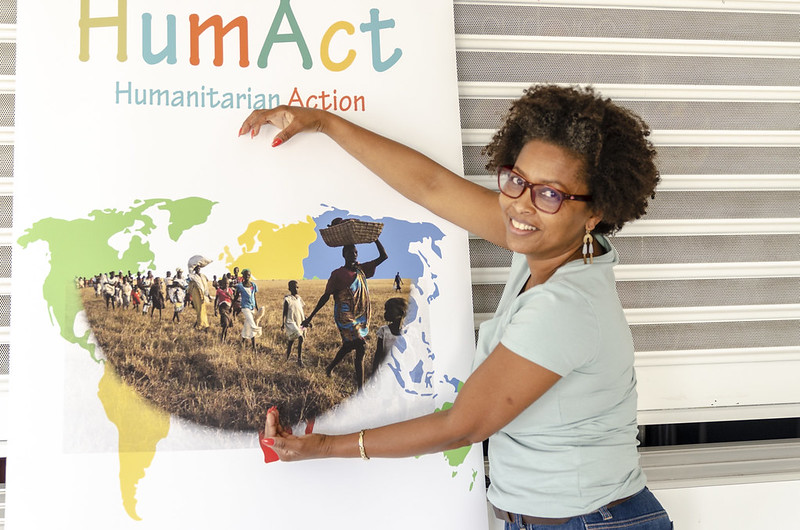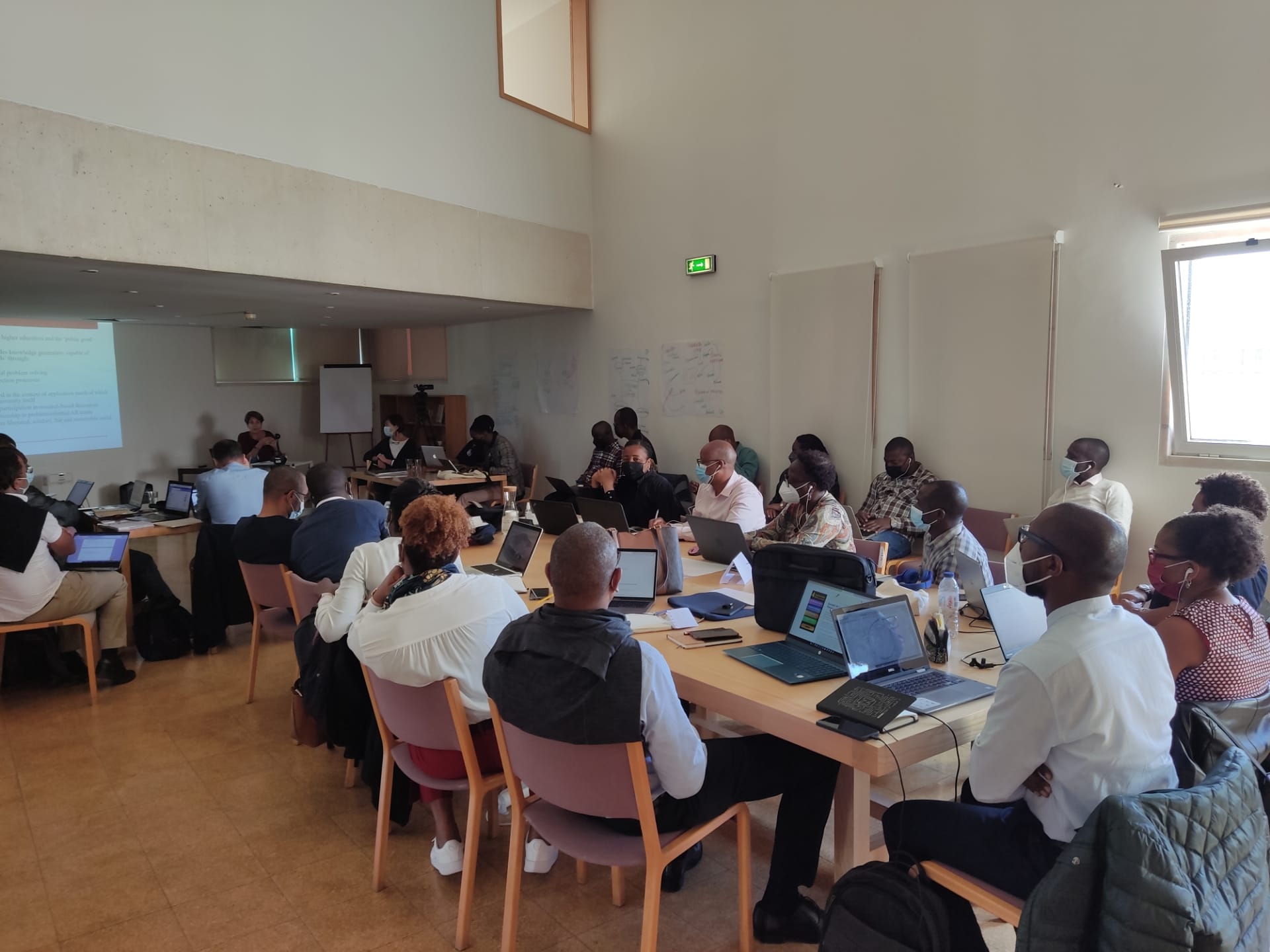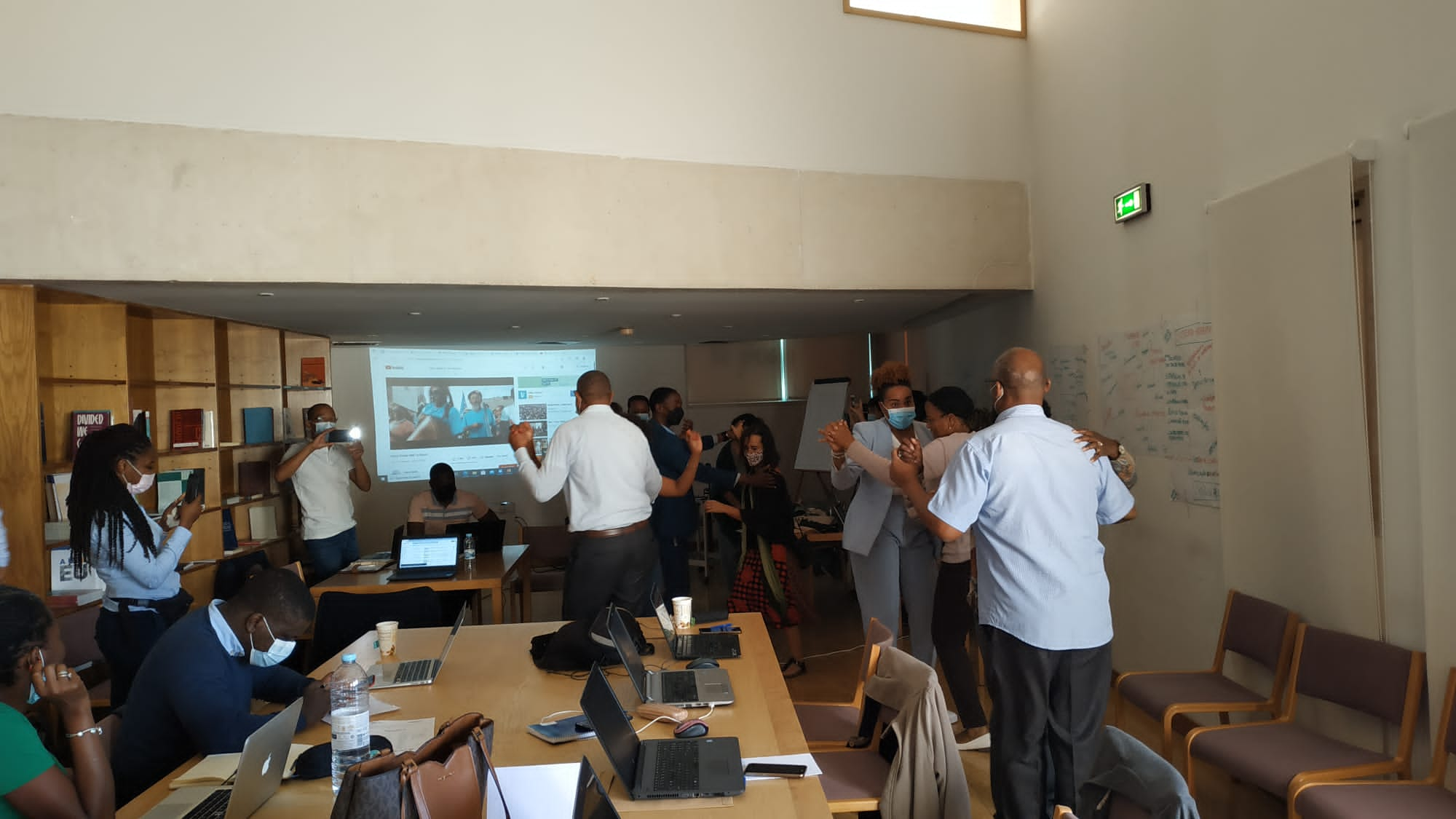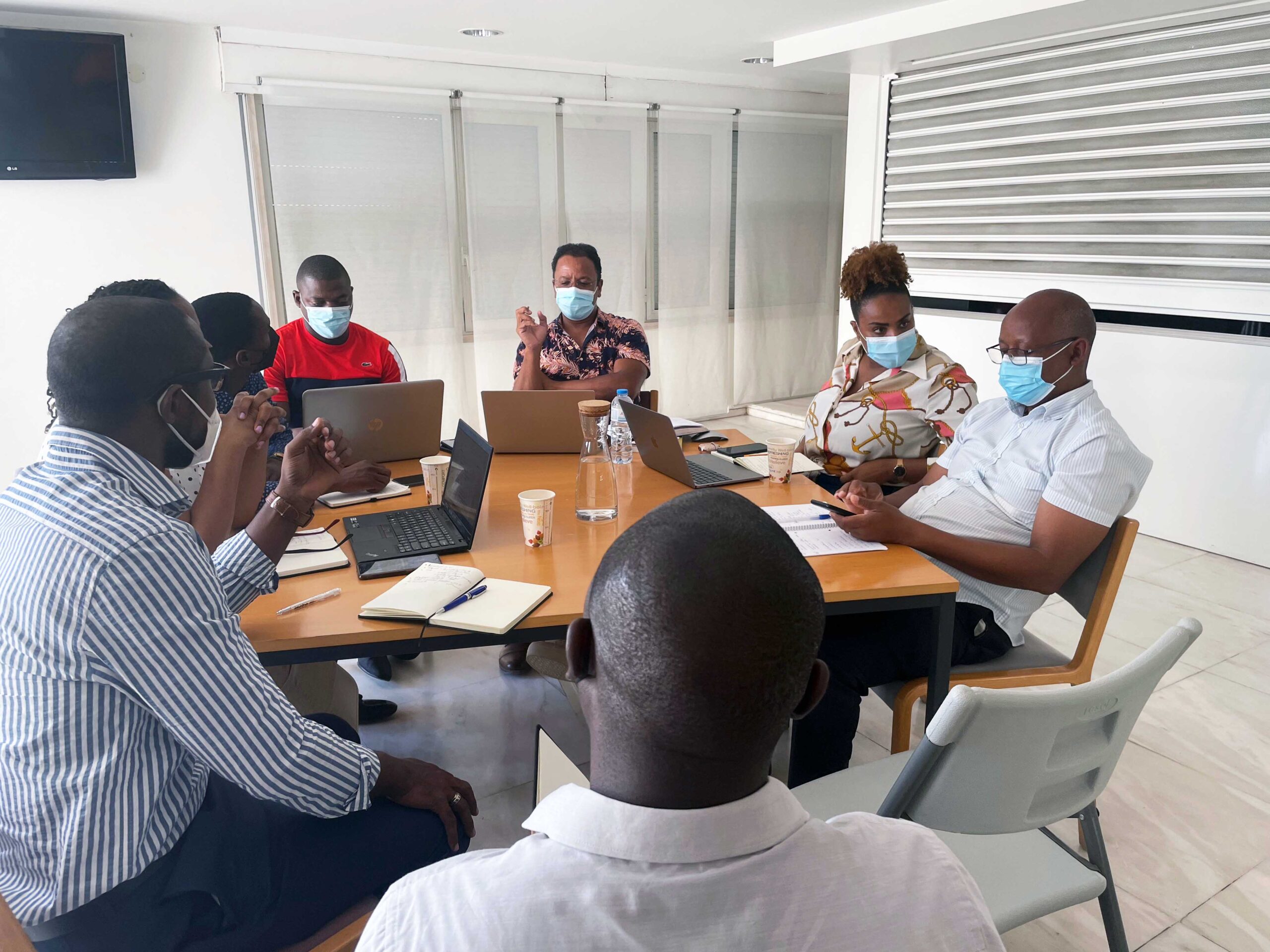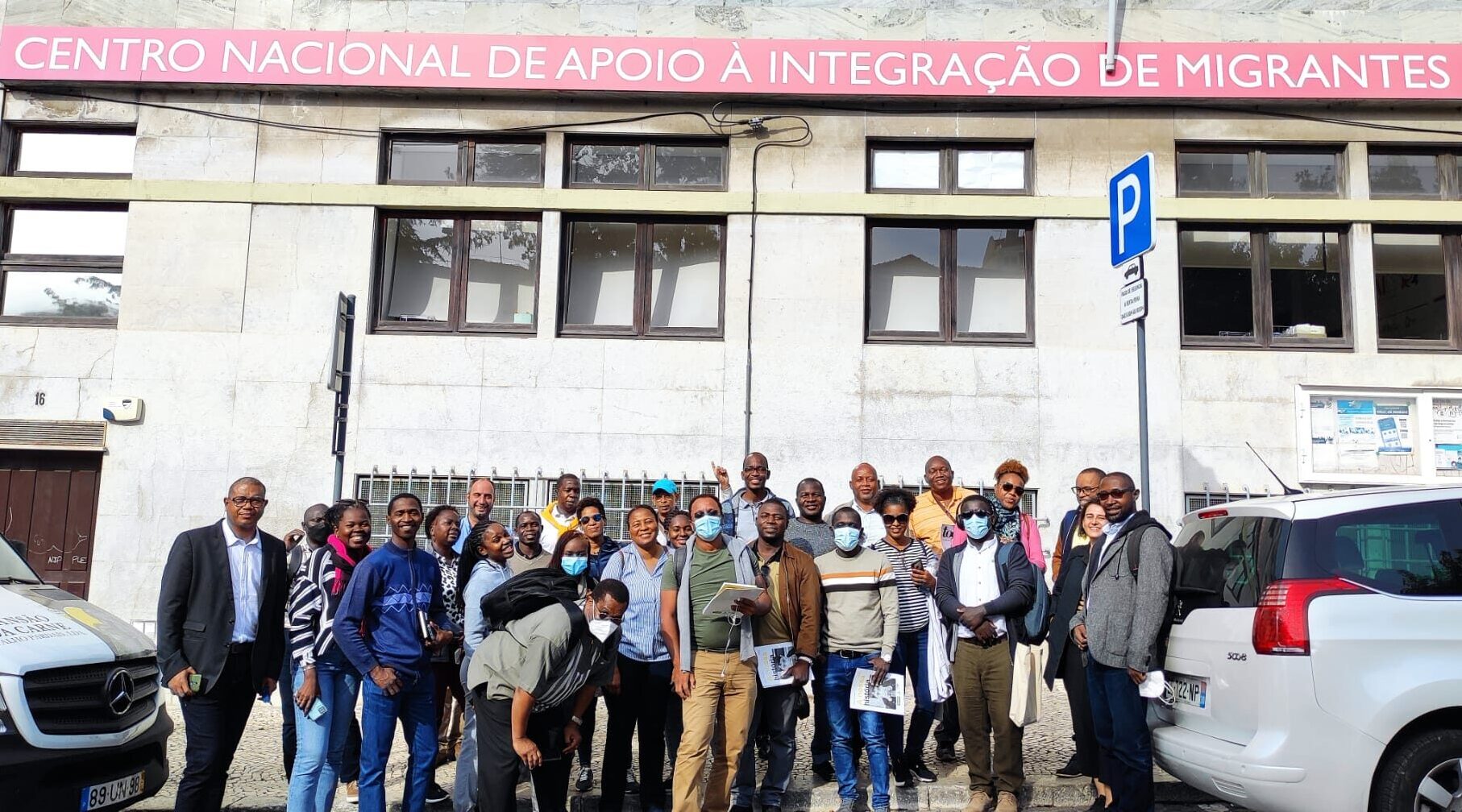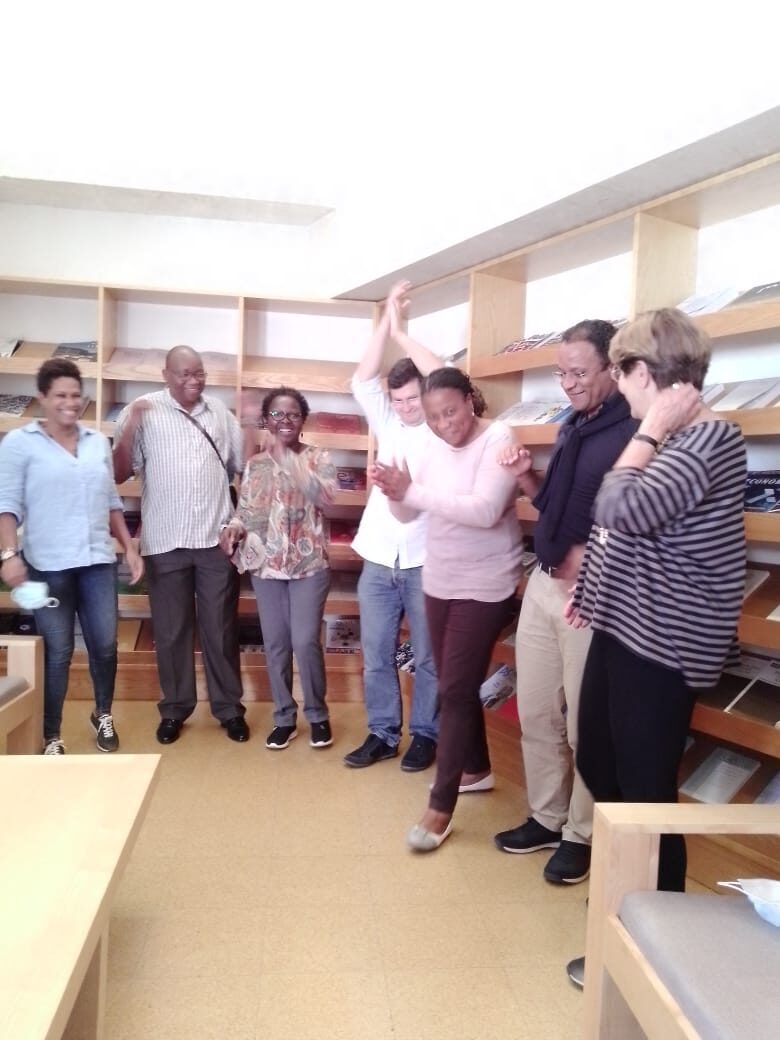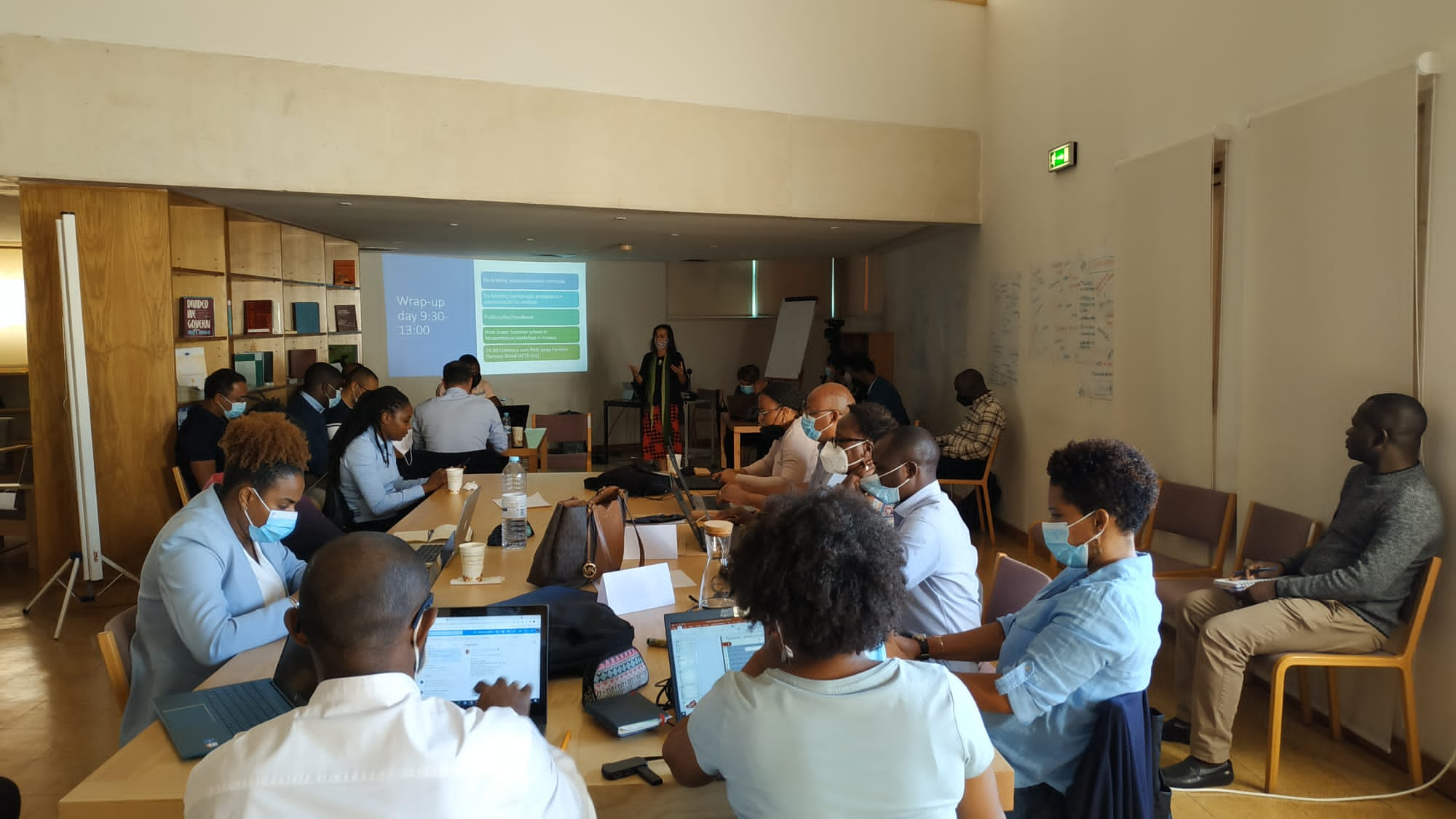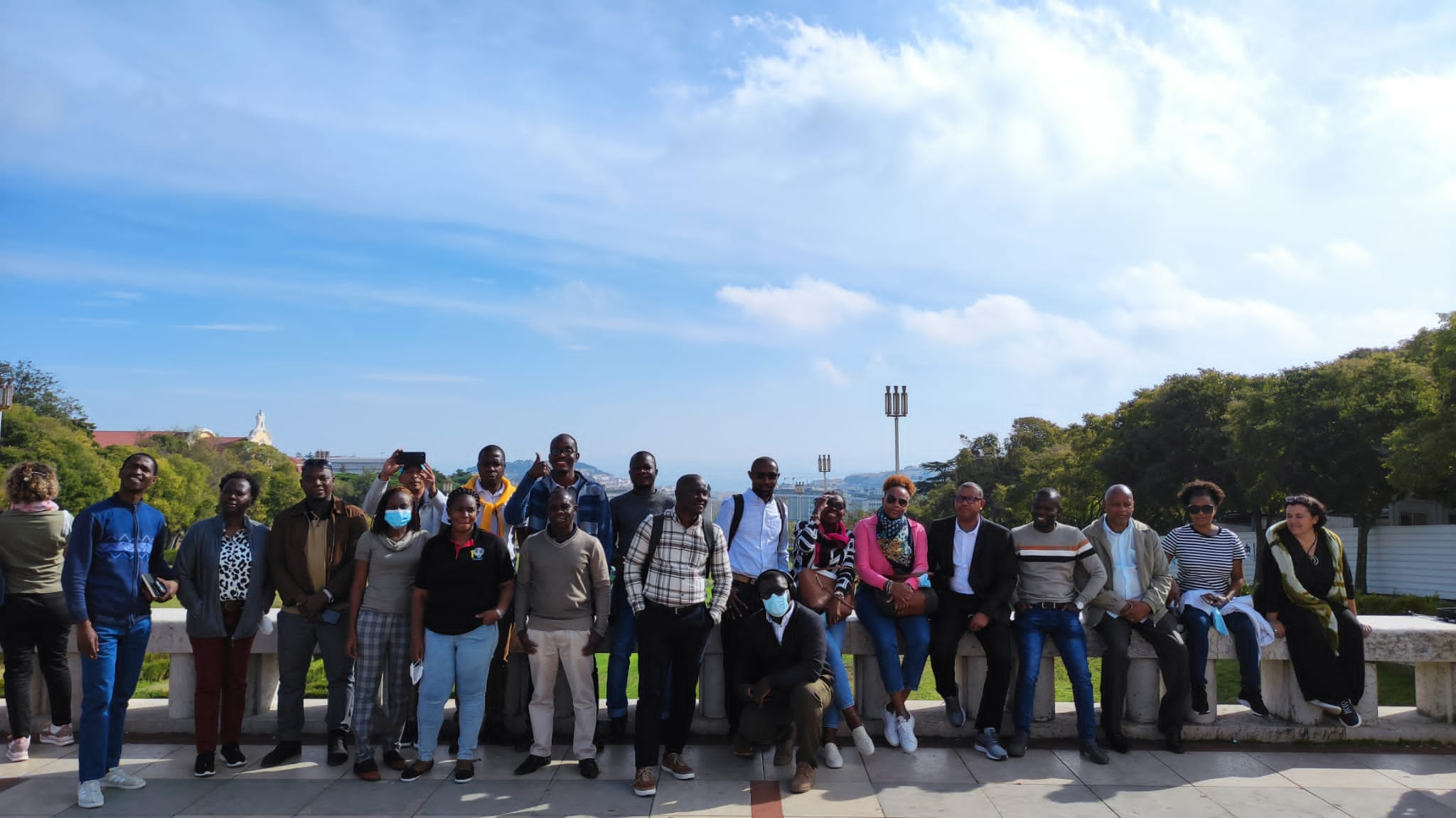Curriculum development and Educator Capacity workshops
Curriculum development and educator capacity workshops will take place in 2021 and 2022, aiming at enhancing the teaching and research capacities of educators. They are designed to be interdisciplinary and transdisciplinary, including educators from various disciplines.
Curriculum development and educator capacity workshop Athens, 27 April- 6 May, 2022
The second Curriculum Development Workshop was held jointly with the Educator Capacity Building Workshop in person in Athens (27 April-6 May, 2021)
It was a very good and productive meeting everyone feeling good that we were meeting again in person and acknowledging that a lot of progress was made the past six months. The ten days were divided between:
Adaptation of the existing modules of Phase II,
Follow up of pedagogical methods and educational materials (bibliography, materials borrowed from outside sources, and materials to be developed),
Exchange of ideas regarding future scientific publications and the development of the project Handbook
Encounters with civil society agents involved with human rights and environment protection,
Visits to institutions catering for education of migrant and refugee children, and refugee reception
In the fringe of the workshop participants had the opportunity to explore the city of Athens. Being together confirmed that a lot is achieved when working in person, something that cannot be attained with the online meetings.
Unirovuma’s capacity training in humanitarian action March 10, 2022
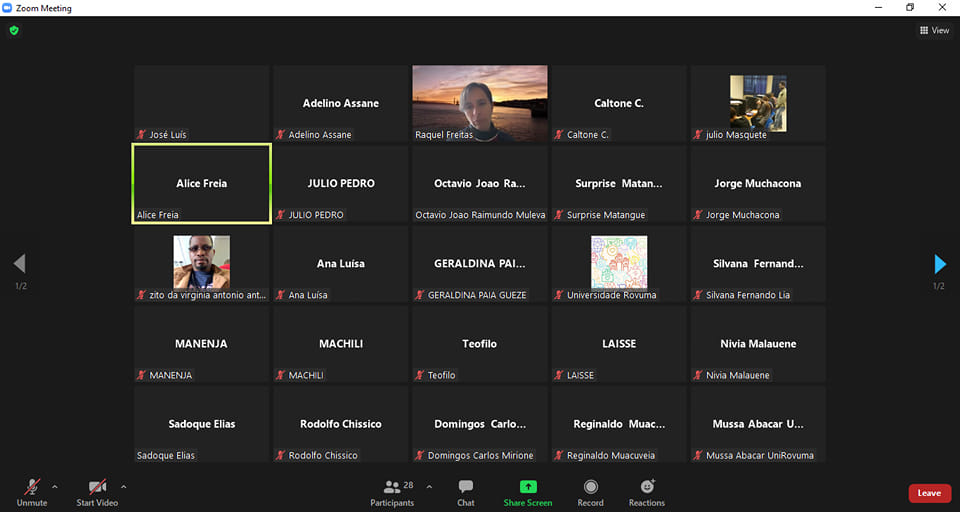
Τhe University of Rovuma (UniRovuma) on March 10 initiated the first training of its teaching body in the area of humanitarian action, using digital communication technologies online.Based on the recognition that the crises derived from natural factors and caused by human action have generated needs for help and better humanitarian response, the training aimed at introducing trainees to the relevant areas of humanitarian action. in involved 42 UniRovuma teachers, including those of the exes Nassa and Cabo Delgado issues. The purpose of the teacher training material, the debates and round table discussions teachers are expected to develop, the involvement of other social actors and the creation or adaptation of resumes and inclusion of content on humanitarian action, was to prepare officers gifted with the necessary qualifications to intervene in disaster situations.According to the UniRovuma HumAct Project Coordinator, Prof. Dr. Alice Freia, this first training is expected to create a work nucleus focused on improving humanitarian action content which is context specific to Mozambique. Another novelty is that the set of actions to be developed will result in adapting some disciplines to include a component on humanitarian action, in creating new modules on humanitarian action, or in creating a targeted humanitarian action.
Online training, March 3, 2022
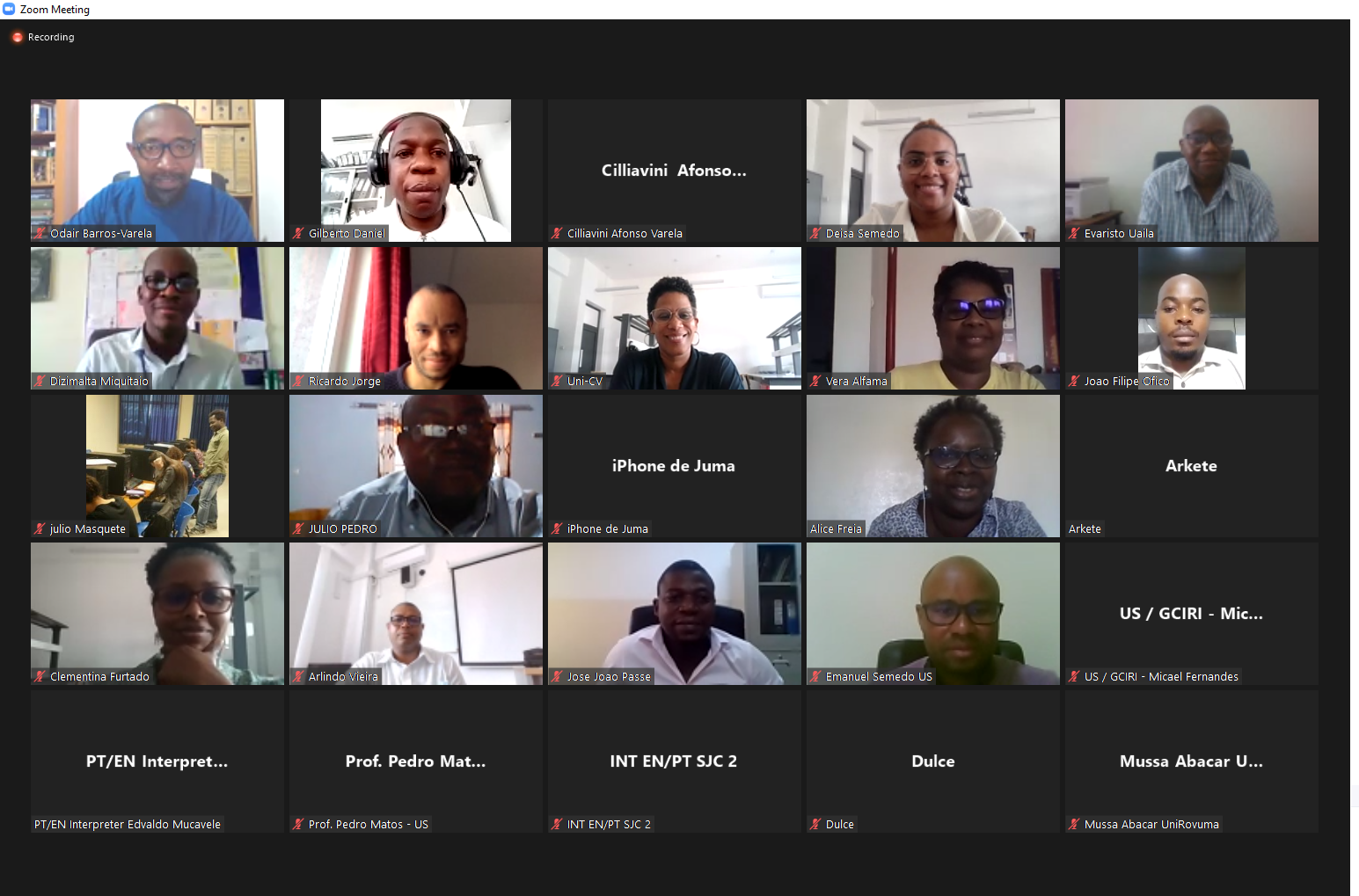
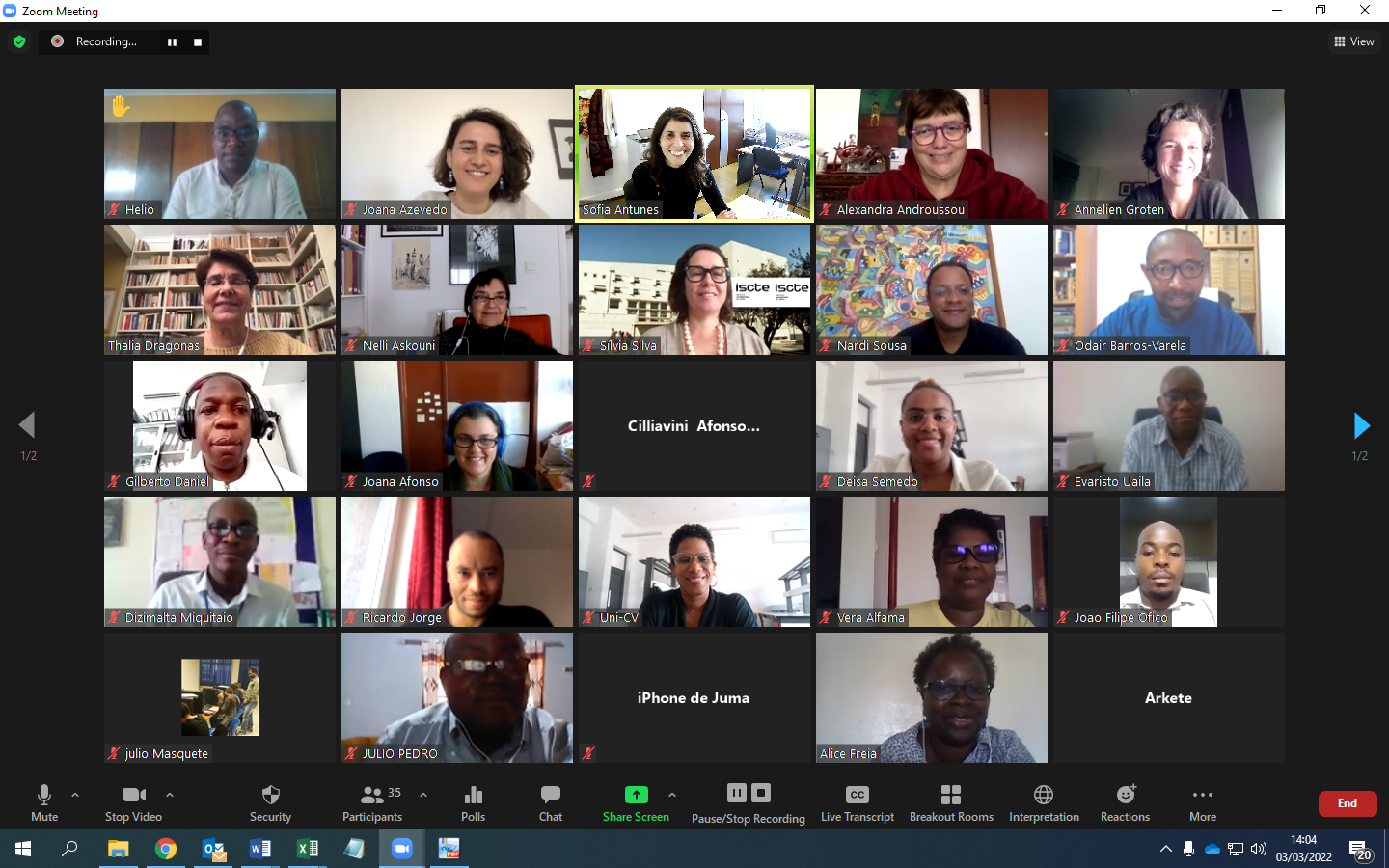
The purpose of the online training held on March 3, 2022, was twofold: (a) Reflection on lessons learned from module adaptation of Phase I, and planning of and discussion on the adaptation of modules of Phase II, and (b) reflection on teaching/pedagogical issues, on needs identified and those anticipated.
The online training served as a preparation for the curriculum development and capacity building workshop to be held in Athens on 26 April-7 May 2022.
In the first part of the training session, participants worked in small groups and in plenary on the organizational approach to module development and on the implementation of this development. As regards the organizational approach to module development they reported on the suitability of the cluster approach followed thus far for the design of the modules, and the sufficiency of resources available to support the development of the modules. They reflected upon improvements in the overall approach and the structure of modules designed, taking into consideration the challenges faced. They identified the strengths and weaknesses in their approach, and they reflected upon improvements in project communication.
As regards the implementation of module development they reported on whether they were able to successfully complete the modules, on the unexpected problems encountered, and on lessons learned from the first phase to be carried on to the second.
Finally, there was an update on the stage of each module of Phase II.
In the second part of training, the discussion evolved around the teaching and pedagogy employed. The main difficulty reported was the development of suitable educational materials. There are no ready-made textbooks and most of the participants have prepared portofolios with articles on the subject taught. There were suggestions on the part of the trainers for material to be drawn from sources such as international organizations, sites and films available on the internet. There was also discussion on development of materials stemming from the work of students themselves. It was agreed that educational materials will be discussed further at the Athens workshop. Another item to be discussed at the workshop is the involvement of other social agents from the community.
Participants felt the workshop served its purpose.
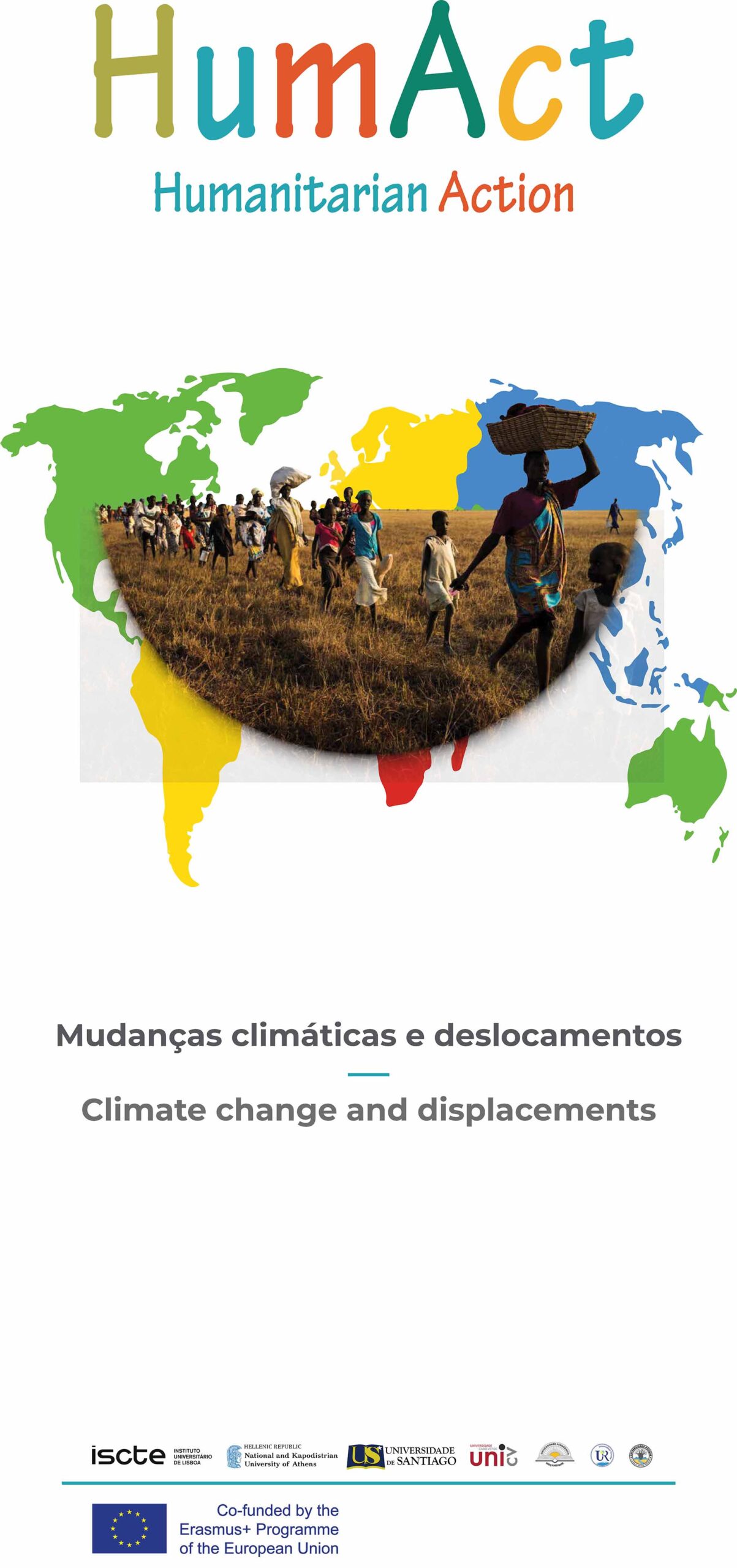
Curriculum Development
and Educator Capacity Workshop
Lisbon 19 – 29 October, 2021
The first Curriculum Development Workshop was held jointly with the Educator Capacity Building Workshop in Lisbon (19 – 29 October, 2021).
It was an exciting meeting since it was the first time the entire group met in person after the delay caused by Covid 19. During the ten days meeting a lot was accomplished in plenary and group discussions:
• adaptations of the already existing modules to incorporate humanitarian action;
• design of new modules;
• introduction to pedagogical methods applying Participatory Action Research and Experiential Learning.
The Workshop included a one-day Conference on “Research and Instruction of Humanitarian Action at Universities in Portuguese Speaking Countries” with rectors and high-standing academics from Universities in Mozambique, Cape Verde and Greece.
Rectors and high-standing academics talk about their commitment to the HumAct project
